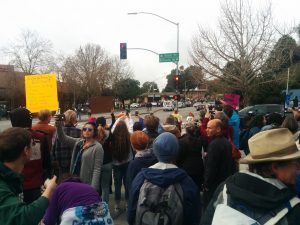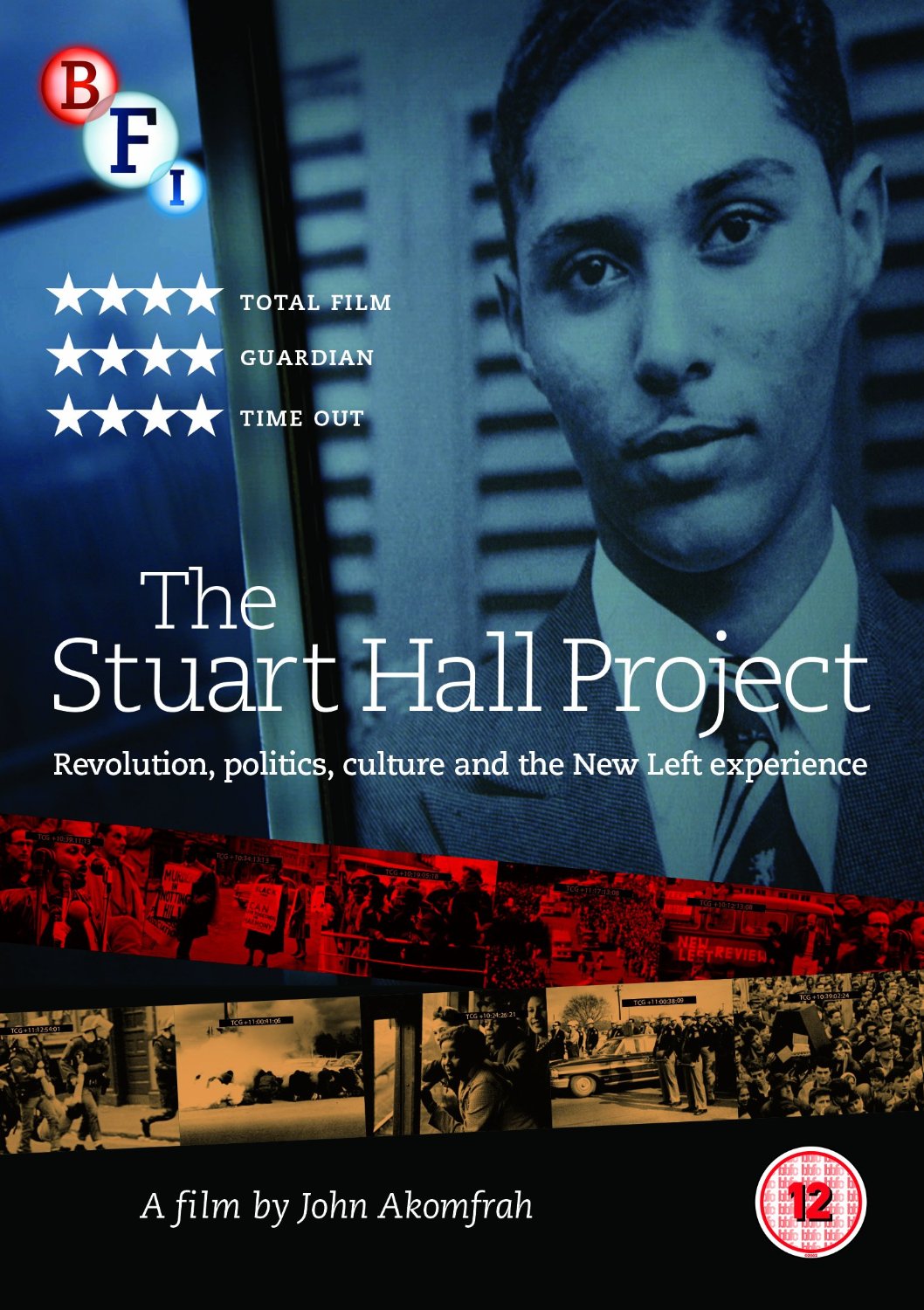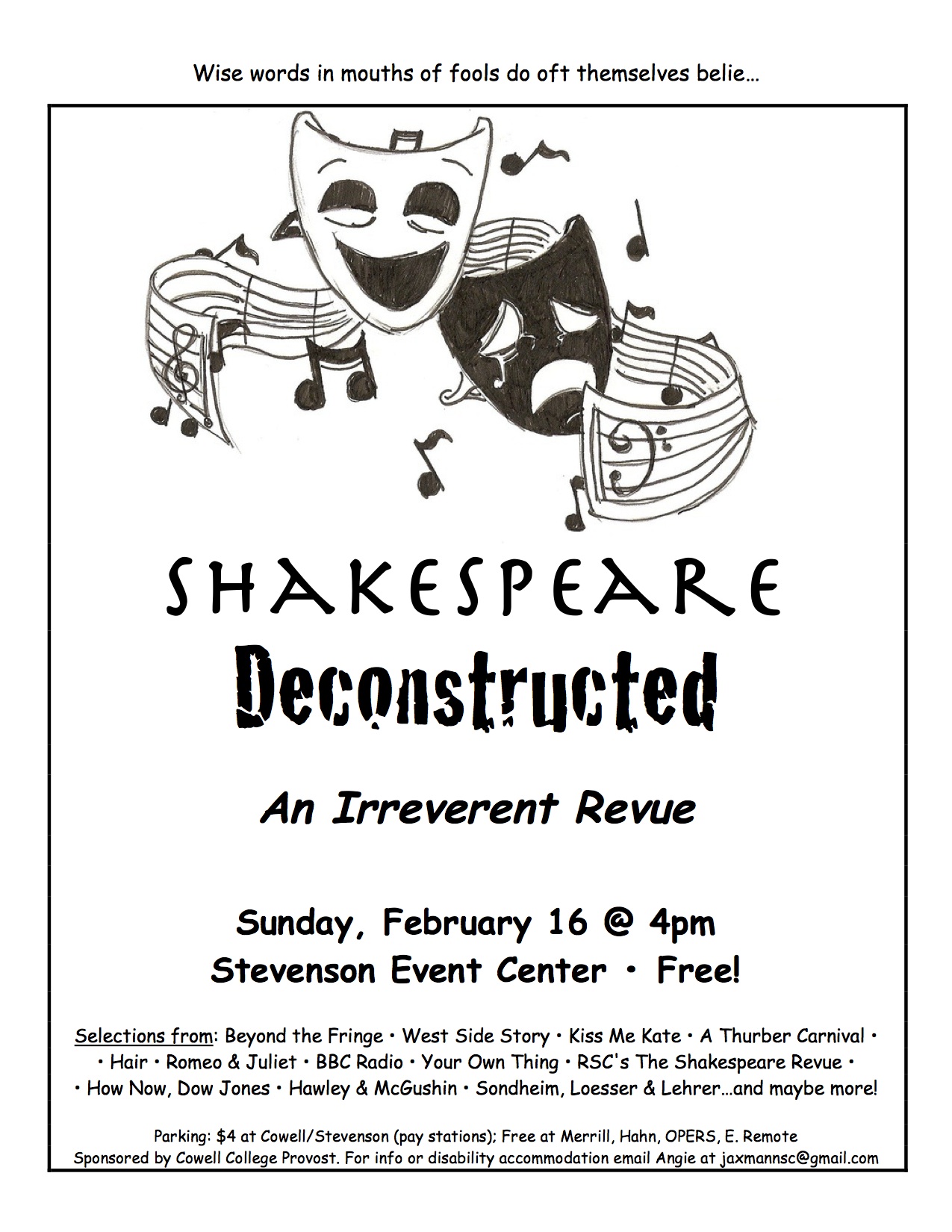Miriam Ellis, Lecturer emerita of French at UCSC from 1979 to 2004, died at home on the 14th of March 2022, a few hours before the seventh anniversary of the death of Paul, her dear husband. Her whole life, she and her children shared a very close relationship: her daughters Debra and Vicki, her son Jonathan and his wife Susanne.
She was born in New York City in 1927 to Jewish immigrants from central Europe. Early on she developed an infectious love for languages, music, and theater. Her love for French took shape during WWII when the French government in exile did all it could to maintain its language and culture. In 1948 Miriam seized the opportunity to volunteer in a refugee camp in France that served refugees from North Africa and the Middle East. After that experience, she married, had children, and left for Southern California in 1955.
Miriam had finished her high school and done some college work before she went to France. She was thirty when she started taking night classes as a re-entry mother caring for her three children. As her 2020 autobiography says, “She then spent the next twenty-two years gradually and steadfastly working through a series of degrees.” She received highest honors in a BA from CSU Northridge and completed a Master’s at the same school. Given her great interest in and experience with international students, she became the university’s Director of the Office of International Programs. During those years, she fullfilled her passion for theater by acting in local productions.
In 1971, she came to UCSC where she left an indelible mark on students and colleagues in French, theater, music (especially opera), and administration. Her initial project was to pursue a PhD in French and Spanish literature at UCSC, a most recent and experimental campus that had started six years before, in 1965. Two of her children also studied at UCSC. She worked very closely with Joe Silverman, an authority on Spanish Golden Age literature, especially Sephardic literature. In 1979, she completed her critical edition and translation of Lope de Vega’s La Francesilla. She began teaching French and literature as a graduate student in 1971, while doing her doctoral research and pursuing her interests in theater and music. Upon completing her PhD, she became a full-time Lecturer in French, and continued to teach and support French, theater, and opera well past her retirement in 2004. Her role in those three areas was astonishing.
Miriam Ellis brought together her teaching of French, work for the theater, and passion for the opera, in such a way that we can speak of a remarkable legacy calling to be continued and furthered. We may start with her admirable teaching of French and the way she directly contributed to the creation of many new language courses. She had the unusual broad vision of language, trust of colleagues, capacity for hard work, and practical experience in grant application that led the Division of Humanities and the Department of Languages (then the Language Committee) to follow her aegis and support her grant applications to the Language Across the Curriculum program. This was a federal program that provided support for the creation of new language courses in which the content would be interdisciplinary (sociological, biological, etc), to the tune of $250,000. About 30 courses that drew on an exceptional cadre of instructors were created in this manner, thanks to Miriam’s philosophy of culture and administrative savvy. The French government recognized her teaching and contributions to French culture in 1999 by knighting her in the order of the Palmes académiques.
As an actor and stage director, she helped build theater at UCSC. She saw it as an integral part of the teaching of languages and created the International Playhouse, now named the Miriam Ellis International Playhouse (MEIP) and funded thanks to the generosity of donors. This brilliant idea, as thrilling as that of the Language Across the Curriculum program mentioned above, is to have students learn and publicly perform scenes in the original languages from traditional or modern plays. The students thereby have a new and different experience of the languages they are studying in their language classes and by presenting them to the public with super-titles, the audience can also participate. Plays in four to six languages have been presented each spring since 2001. So far, the languages have included Chinese, French, German, Greek, Hebrew, Italian, Japanese. Latin, Portuguese, Punjabi, Russian and Spanish. This year, watch for announcements regarding season XXII of the Miriam Ellis International Playhouse, which will happen on May 20, 21, and 22, 2022 at 8:00 PM in the Stevenson Event Center at UCSC.
Miriam worked as a stage director for the Opera Workshop in the seventies and co-founded the Santa Cruz Opera Society, Inc. (SCOSI), starting productions, organizing conferences, bringing important artists to the audience. She taught numerous classes on opera, sometimes in cooperation with John Dizikes and Tom Lehrer, either in the Humanities curriculum or for the Osher Lifelong Learning Institute (OLLI) where she was a lifetime member. Notably, she was a co-editor and translator of two important works. She helped with the American premiere of the lost manuscript of Les visitandines by François Devienne (1759-1803) that Sherwood Dudley, a professor of music and conductor at UCSC, had discovered in Lille. It was performed in 1997 at UCSC as part of the inaugural festivities for Chancellor M.R.C. Greenwood. In 2016, again in collaboration with Sherwood Dudley, her translation of the libretto of Le nozze di Figaro, a major work of Mozart, was published by Passaggio Press as The Flexible Figaro. This was a huge accomplishment and a labor of love that took twenty years of meticulous translating and editing work. A version of Le nozze di Figaro had been performed at UCSC in 1989 for a celebration of the bicentenary of the French Revolution. It was marked by the presence of Danièle Mitterrand, wife of François Mitterrand, the French president at the time. Miriam also translated arias from French, Italian, German, and Russian that are available on Arias in original & translation, her own UCSC website.
Miriam Ellis’ generosity of spirit, perseverance, and love of family, students, and colleagues have enriched and transformed those who have known her. Her life inspires us to sustain her passion for languages, cultures, theater, and music.



